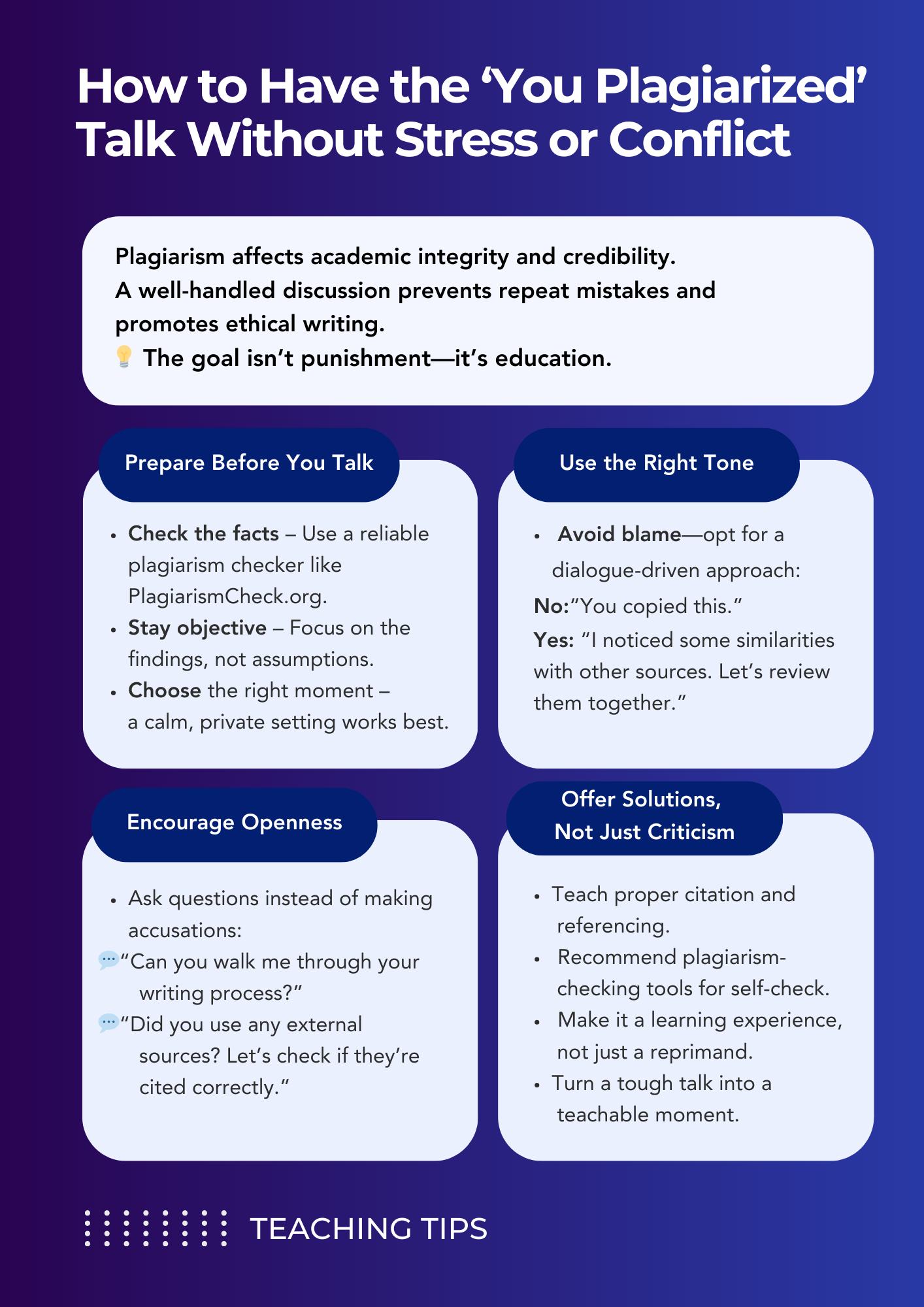You read a text – a student essay, a blog post, a media article – and can’t get rid of deja vu. The text sounds as if you’ve seen it before. Plagiarism checkers don’t detect anything wrong but the catch is definitely somewhere around here. Savvy educators and editors know this catch. Synonymized plagiarism is its name.
“If all is that simple, why shall I spend time and money on plagiarism detections unable to discover duplications?”
First, not all plagiarism checkers work the same way. (Spoiler alert: ours recognizes synonyms.) Second, there are some tricks to help you discover this type of plagiarism in texts; in this article, we are going to share them. But first things first:
What’s So Tricky About Synonymization?
The more advanced technologies appear to beat plagiarism, the more loopholes cheaters try to find to circumvent restrictions. Obviously, it’s a nightmare for students to be accused of plagiarism as consequences might be way more serious than poor grades. Plagiarism is one of the despicable acts of academia, and educational institutions move heaven and earth to defeat this phenomenon. But not by academics alone.
- It’s wrong to steal content.
- It’s embarrassing.
- Consequences are far from pleasant.
Use advanced plagiarism checkers and consider your human powers to detect this plagiarism type instantly.
What You Can Do Yourself to Detect Synonymization
“To exist, or not to exist? That is the query.”
- It doesn’t sound natural: weird grammar constructions, low readability, word choice fails the context.
- It closely echoes texts you’ve already read.
- It doesn’t fit the writing style of a given author: their other works sound different.
- It has too many stop words, wish-wash, redundant adverbs and adjectives, passive voice, parentheses, and other lexical items with no meaning.
- It doesn’t sound like a logical narration: sentences or paragraphs seem unrelated to each other.
How PlagiarismCheck.org Detects Synonymization
How plagiarism detectors work
Despite doing wonders to facilitate the work process, plagiarism detection is no magic wand. The tool relies on thought-out algorithms and cutting-edge technologies, guaranteeing customers a precise and easy solution.
- Each tool has a database. Its vastness depends on the product: some checkers search only online, while others have access to specific repositories. PlagiarismCheck.org, for example, searches all the resources available online, including freshly published or deleted content. Besides, the detector has access to some closed databases that are unavailable for free, ensuring more accurate results. Moreover, the customers can upload their own texts for comparison–for example, teachers can add their institution’s repository to prevent students from copying from each other.
- Empowered by sophisticated algorithms, the tool compares the text submitted for the check to all the content from its database. It flags the matches between the writing and the database and gives a potential plagiarism percentage based on the similarities. The depth of analysis depends on the tool. PlagiarismCheck.org, for instance, catches not only verbatim copying but can trace poor paraphrasing, synonymization, sentence restructuring, hidden symbols, and other tricky cheating attempts.
- The report reflects the number and character of matches between the text and the database. It can provide other details: for example, PlagiarismCheck.org generates a downloadable report where the user can see all the sources where the similarities have been caught and analyze them by comparing the paper to the source text.
Unobvious facts about plagiarism checkers
- Modern similarity detectors can provide comprehensive text analysis. PlagiarismCheck.org, for instance, also assists with punctuation and grammar and includes a Chat GPT checker, Citation Generator, and Authorship Authentification tool.
- The checker detects similarities that are allegedly plagiarism. However, it is for the customer to make the final conclusion: sometimes copying is accidental, or the matching parts contain information that the author needs to keep unchanged. It is handy that the detector flags the matching parts of the text so one can analyze it and make a verdict.
- Students can use the plagiarism checker to learn from their mistakes even before the teacher’s feedback. By scanning the text for similarities, they can avoid unintentional plagiarism, master proper paraphrasing and citation, and improve writing skills.
- Top-notch plagiarism detectors can be fully integrated into the workflow. In particular, PlagiarismCheck.org can be used on popular Learning Management System platforms, as a browser extension or Google Docs add-on, or implemented into any environment through API.






